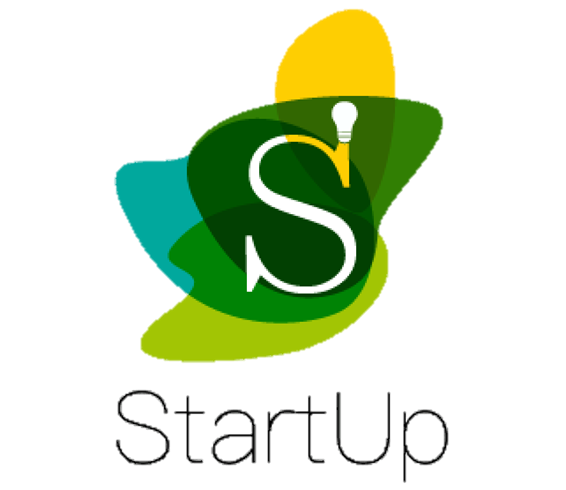From Dis-ability to Ability: The Use of Processwork and Appreciative Inquiry Theory towards Developing an Efficient Model of Training and Support for Carers and their Beneficiaries
The present article does not refer to a case study; rather, it has to do with a first attempt to provide a solid theoretical background for the investigation of pathways through which people with disabilities can tap into their hidden positive resources and of ways the role of a trainer can be of paramount importance to this purpose.
Disability is a situation that by and large carries with it a certain kind of “stigma”. We can talk about all kinds of disability: kinetic, visual, mental deficiency, drug addiction, genetically determined chronic illness, that seriously curtail a person’s ability to live life to its full- at least with the “ordinary” everyday standards. Disability requires certain “accommodation” changes, so that the disabled person can feel and act “equal ” to the others. The person has to deal with both inner representations, stereotypes, fears, criticisms and the like, concerning his/her condition as well as external reactions, stereotypes, beliefs, lack of facilities in the social sphere to say the least. He/She also carries a belief about equality and the extent to which this can be obtained in the present society(Turner,1986).All this adds to him/her experiencing a serious deficit of inner resources, inner power to learn, grow, establish relationships and live a life worth living.
But to what extent is this deficit, this “inadequacy” real? Does the person really suffer from lack of inner resources-if any? And to what extent external circumstances determining his/her fate towards developing true potential? Also, what makes someone work as “a carer for people with disabilities?”
People who deal with people with disabilities all share certain characteristics: It could be that they have a person with disability in their environment and they have a strong motive to be of help not only to the relative or friend, but also to the society at large, managing to make up for this “ injustice”; it could be that they feel “ disabled” in some shape or form, and through identification with the disabled, continuously strive to overcome whatever inferiority complex or perceived inadequacy and to rise above the situation- both for them and the others. It could be that they experience some sort of injustice and want to make up for it, giving to the world a significant lesson on justice and humanity. Whatever their conscious or unconscious motivation, one thing is certain: that they have to get in touch, tap, recognize, activate and behave according to their inner strength, potential and ability- being able in turn to instigate and activate similar processes to the people they train, inspire and take care of.
How is this possible? What obstacles does a carer of people with disabilities have to overcome? What is the mechanism of finding your own inner power? And how do you differentiate between wishful thinking and true potential? How can you overcome the traps of the so called self- fullfiling prophecy( i.e. that a disabled person cannot for example become an entrepreneur, and finally the person does not, even though you have discerned that with some support he/she would flourish as an entrepreneur).How can you overcome your own beliefs on inequality?
This is where the principles of Deep Democracy and Appreciative Inquiry come into play.
Let me try to dwell a little on these two theories.
The concept of deep democracy was first coined and developed by Dr. Arnold Mindell and his followers, referring to a holistic experience of getting in touch with one’s entire psychic being and act from this point of reference, accepting all aspects of oneself and the others: “Deep democracy is an inclusive attitude….we can connect humanly with each other’s experience….”(Wolfson,2017,p.1). Another concept appearing in Mindell’s theory is the concept of deep power, deriving from the works of Process work approach in an attempt to deal with the global issues of leadership, multi-stakeholder facilitation and conflict work around the world (Mindell,1993; Wolfson,2017). With the term processwork we refer to “an evolving, transdisciplinary, transcultural and multilevel approach to supporting individuals, relationships and groups in their self-discovery…” (Wolfson,2017, p.1).
By using the term of deep power we refer to nine innate powers, which any individual or group can develop and which, in the field of human services, are beneficial for any person reliant on support. These powers emerge from the spiritual and psychological zone and refer, among others, to: access to one’s inner direction in following your path, surviving adversity with inner strength, developing loving curiosity towards people and events, and make self-affirmations to survive outer and inner critics. In the psychological zone, self -attunement to stay related even in stressful situations facing injustices of the past, to transform historical ghosts into positive leadership experiences and making conflict fruitful are among powers that anyone can develop and which can expand our idea of inclusion and at the same time create a diverse mindset(Dweck,2017): From a downgrade position of less social or positional influence we help people to turn inner powers into influential strengths, protect their legal, human and citizen rights and on a deeper level, we keep people’s right to dream and to flourish.
We move from a negativity bias focusing mainly on deficits-towards a mindset based on strengths (Solnit,2005, Dweck,2017). We also move from a position where one gives support and the other receives support to a mindset where we all learn from each other, we all need support and we can all flourish (Wolfson,2017,Dweck,2017).Finally, by experiencing deep democracy, first us and then the people we care about become more fully who we are , we can experience our own uniqueness and this in turn can make us feel safer, influence change and make a difference both in our life, but also at a global level(Mindell,1993).
The appreciative inquiry is an approach which, by asking relevant questions brings to the fore all goodness that people have, acknowledging at the same time rough edges, difficult feelings and personality issues. It is an approach towards the relevant use of the language to create positive alternative experiences, to make people dream and help them to make their dreams come true, and to preserve people’s dignity. As the late famous mentor Peter Lang said: “People change through dignity”. Via appreciative tools all the previous points can be realized both for carers and disabled people alike (Γκότσης, 2019). Ιn other words, we try to bring humane attitudes to people who for various reasons have experienced lack or loss of personal status, power and control.
Another added value of changing disabled people’s mindset is their ability to be part of the production line, survive on their own means, find meaning and overcome to a large extent their status of dependency on others. But, is the world ready to accept it?
At this point training of carers for the disabled based on the previous theoretical tenets becomes of paramount importance. Focusing on oneself is the first, necessary step, but it is not enough; inspiring and initiating similar change processes to the people we take care and work with is the next step. But only through acquiring a wide, systemic view of disability, ability, change and equality can we have a substantial impact worldwide in giving the opportunity and “allowing” disabled people to tap their inner resources, rise up to their true potential, by daring to dream about the life they would like to have and make this life a reality (Mindell, 1993,Γκότσης, 2019,Solnit,2005).
By Aimilia Markouizou Gkika, M.A. Psychologist of Education-Family Therapist-Adult Trainer


